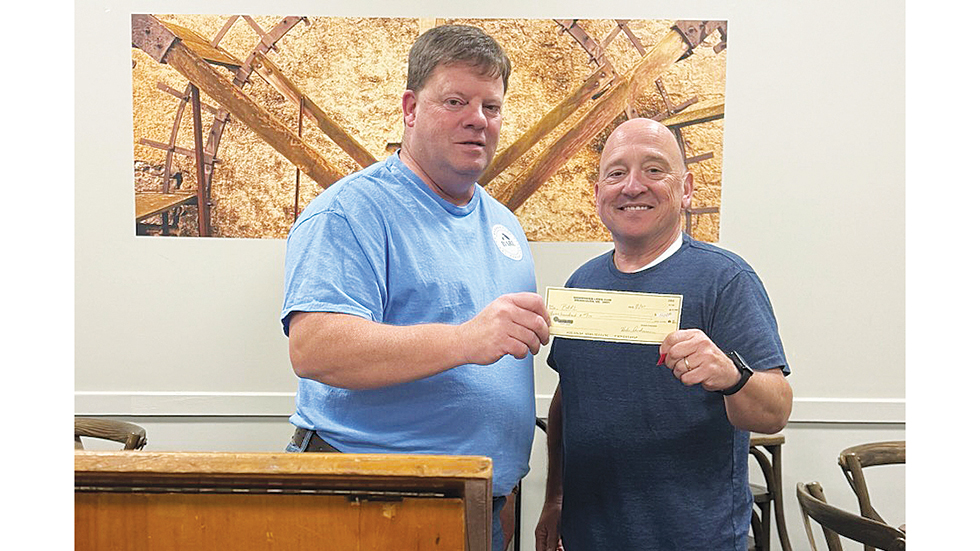Canceled fair is a microcosm of COVID-19 realities
Published 3:29 pm Tuesday, June 16, 2020
Longtime readers of this column know of my deep and abiding affection for the Neshoba County Fair and the old-time political speaking under shade of the old oaks and the tin roof of the Founder’s Square Pavilion.
At the 2019 Fair, during a courthouse-to-statehouse election cycle, there were just over seven hours of political speaking at Neshoba. This year, there will be none in the traditional sense due to the cancelation of the 130-year-old event by action of the Neshoba County Fair Association’s board of directors.
Citing COVID-19 public safety and health concerns, the Fair Board unanimously determined that the campground fair could not effectively and safely hold the event and still comply with federal and state guidelines. The decision was greeted with both praise and criticism from the general public and the Fair Association membership alike.
Trending
The closure dovetailed with the May 28 decision to cancel the 2020 Choctaw Indian Fair by the Mississippi Band of Choctaw Indians, with Tribal Chief Cyrus Ben citing COVID-19 concerns as the reason.
Neshoba County has long been the economic beneficiary of the dual fairs. But the cancellation decisions had a strong basis in COVID-19 data. Neshoba County has one of the state’s top COVID-19 outbreak totals and was for a time the target of special social distancing and screening guidelines from Gov. Tate Reeves.
As the county’s positive COVID-19 case totals rose to third highest in the state, Reeves earlier ordered Neshoba County businesses to provide screening and masks for employees and asked patrons to wear face coverings inside businesses.
Compounding the situation was the unusually high incidence of COVID-19 among the Choctaw population. Among the more than 820 positive cases in the county, almost 500 were Native Americans.
The Neshoba County Fair closure marks the first time since World War II that the annual event will not be held. For the record, the event voluntarily shut down in 1942, 1943, 1944 and 1945 before resuming operations in 1946.
Jim Prince, publisher of The Neshoba Democrat, consulted his own newspaper’s archives and reported that during the war, reasons for canceling the event varied from gas and tire shortages to an absence of “fair spirit” while the nation was at war in Europe and the Pacific.
Trending
My late friend and fairground neighbor “Snooky” Williams of Water Valley, who often spoke eloquently to national correspondents for National Geographic and The New York Times about his love for the event, often lamented those fairs during his youth lost to the war effort, but said: “I was too young to fight in World War II, but even at 13 I knew that as much as we all loved and missed the Fair, we didn’t have any business being out here (the fairgrounds) while our friends and kin were over there (overseas).”
As a fair cabin owner and Fair Association member, I saw the board’s cancellation decision as an incredibly difficult one, but at the same time the right and responsible one. I believe the Fair Board should be commended for their courage in foregoing the popular for the prudent.
Yet on social media, the debate raged between those relieved by the decision and those enraged about it. The tone and tenor of that debate, like the ongoing culture wars over COVID-19 and the resulting economic shutdown, is a microcosm of where our country is politically.
On one side, there are those who defiantly refuse to wear masks, practice social distancing, or practice rigorous handwashing or disinfectant protocols. They want to go where they want, without restriction, and without a nod to what other people say or think on the subject.
On the other side are those who see such health and safety practices as the minimum acceptable reaction to a global pandemic — and see those who disagree as irresponsible.
There are some as yet unconfirmed rumbles about an effort to cobble together a virtual political stump speech program sanctioned by fair organizers and available online via Zoom or WebEx or another medium. Stay tuned.
Sid Salter is a syndicated columnist. Contact him at sidsalter@sidsalter.com.





